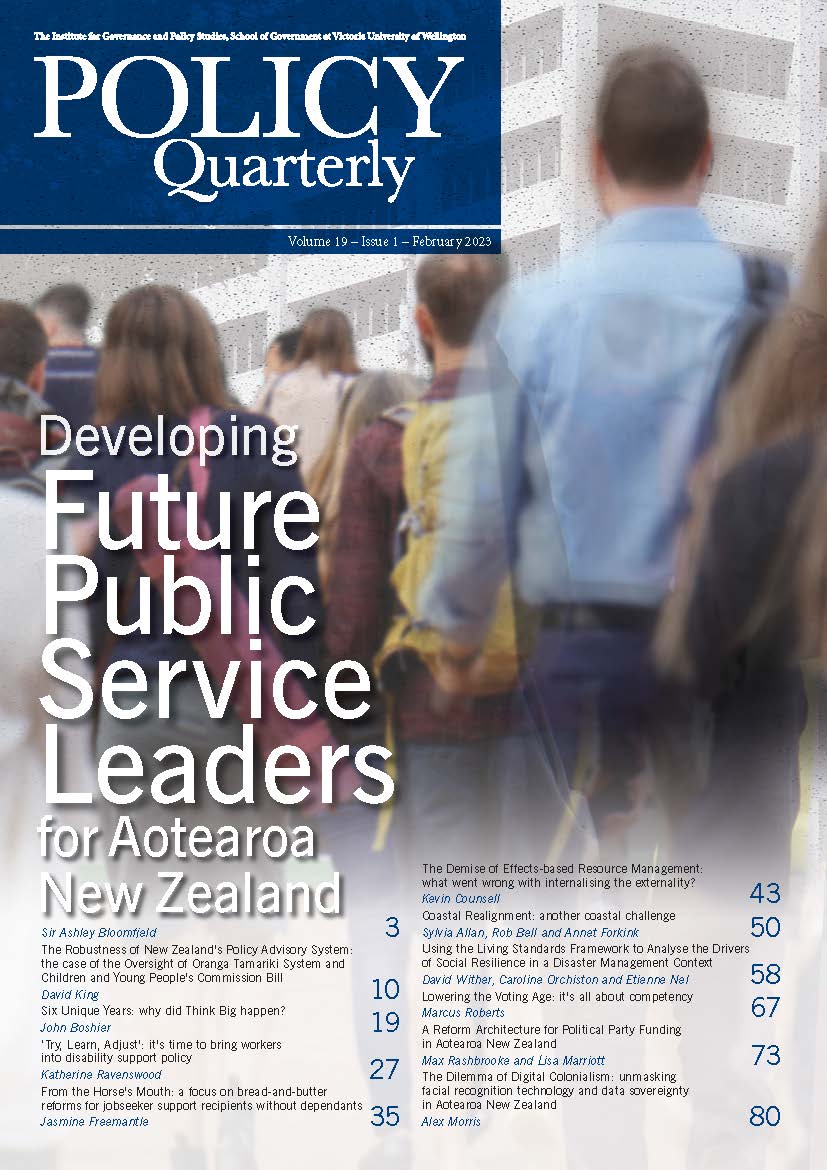Coastal Realignment
another coastal challenge
DOI:
https://doi.org/10.26686/pq.v19i1.8105Keywords:
Coastal planning, Managed realignment, Sea level rise, Wetlands, Coastal adaptationAbstract
While the concept of managed coastal retreat is now familiar to many, the future for rural coastal lowlands has received less attention.
Planned processes of coastal realignment can create opportunities, including carbon sequestration, nature-based transformation of coastal interfaces, and evolution of increasingly unproductive farmland towards other beneficial activities. Our present planning system provides high-level policy support for these changes but is mired in detail and short on recognition that the coastal edge will advance inland. While the challenges are being addressed positively in some areas, including by, or in partnership with, iwi/hapū, there is a national lack of leadership in integrated management across the changing land–sea interface, land ownership remains problematic, and funding requirements remain unresolved. New legislation promises improved approaches and is urgently needed.
Downloads
Downloads
Published
Issue
Section
License
Permission: In the interest of promoting debate and wider dissemination, the IGPS encourages use of all or part of the articles appearing in PQ, where there is no element of commercial gain. Appropriate acknowledgement of both author and source should be made in all cases. Please direct requests for permission to reprint articles from this publication to Policy-Quarterly@vuw.ac.nz.



